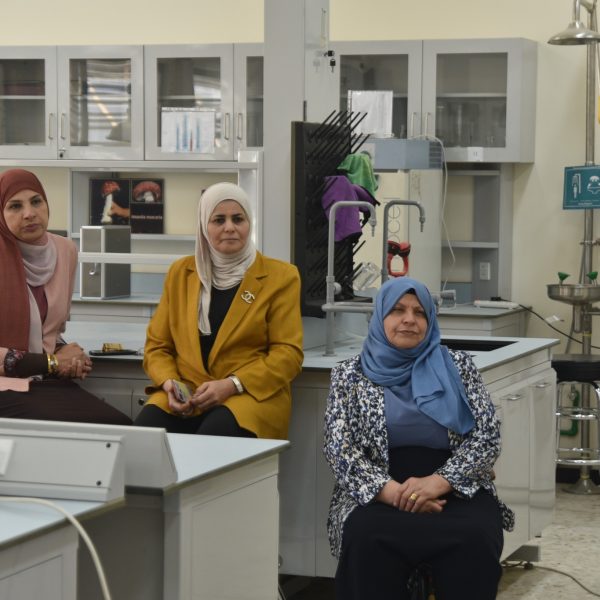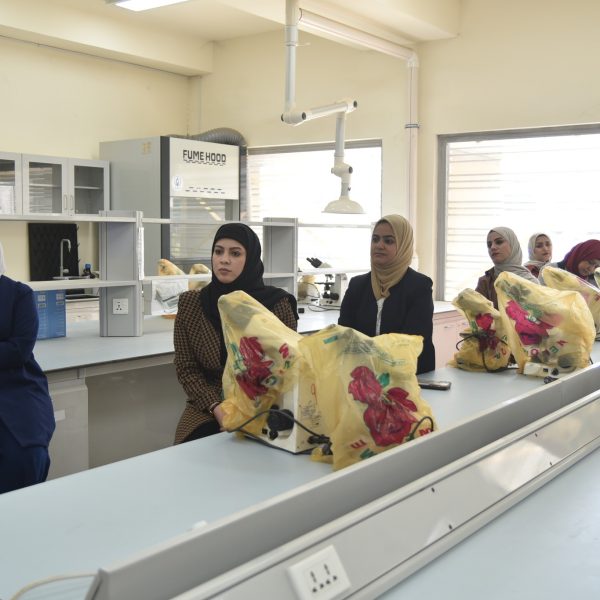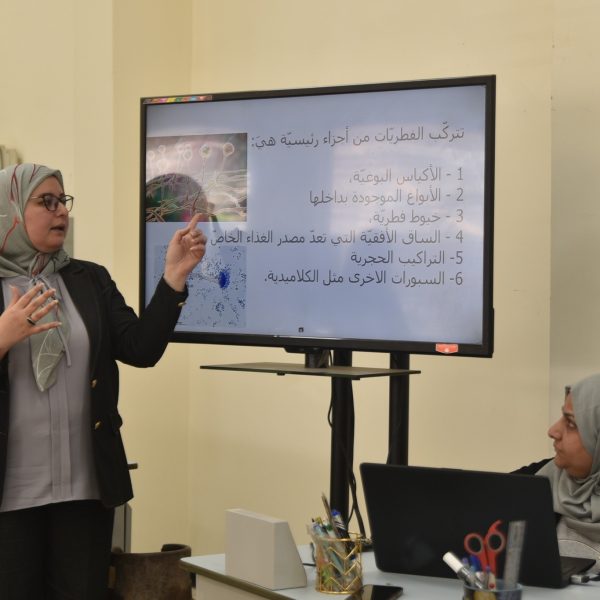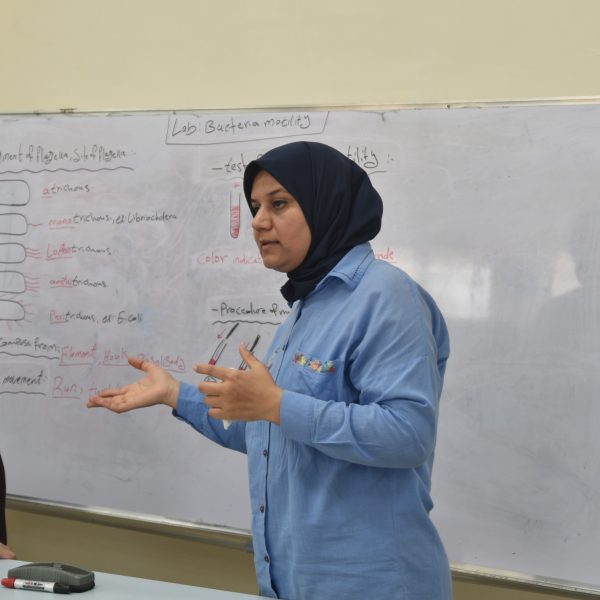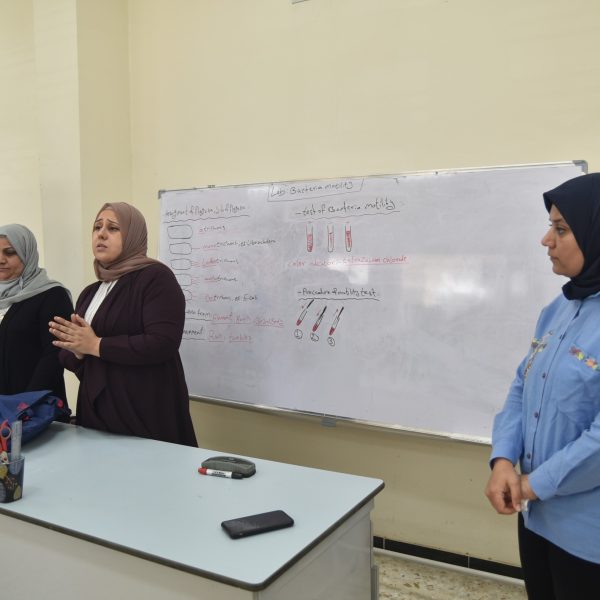Under the patronage of Dr. Sameera Naji Khdim, Dean of the College of Science for Women, the Continuing Education Unit, in collaboration with the Department of Biology, organized a training course on the isolation of fungi from soil, water, and air. The course was presented by Dr. Tayba Hashem Mohammed, Dr. Abeer Mohammed Hussein, Ms. Saja Hassan Abdul Amir, and Ms. Basma Ali Jassim. It was held in the Fungal Laboratory and attended by several faculty members and students of the department.
The lecturers outlined the main topics of the course, which included isolating fungi from water and soil, the various isolation methods, and the suitable conditions necessary for fungal growth, as well as providing appropriate culture media.
The course also highlighted a set of measurements that must be considered in every research work, including pH, temperature, and salinity, along with the importance of preparing essential elements to ensure the success of the isolation process, such as sterilizing containers and maintaining appropriate temperature and humidity for effective diagnosis and isolation. The fungal isolation process is conducted either to determine and measure pollution indicators or to assess the environmental medium.
The lectures covered in detail the various types of fungi, their structure, fungal bodies, and their environmental benefits, as well as the harm they may cause if humans are exposed to them, especially farmers who are more susceptible to fungal contamination from polluted water or soil. It is worth noting that there are 1,500 types of fungi, of which only 150 types affect humans, originating primarily from pathogenic and non-pathogenic soils. These fungi appear in different forms, with the first type being a single-celled organism that can easily infect humans, while other types naturally include molds.
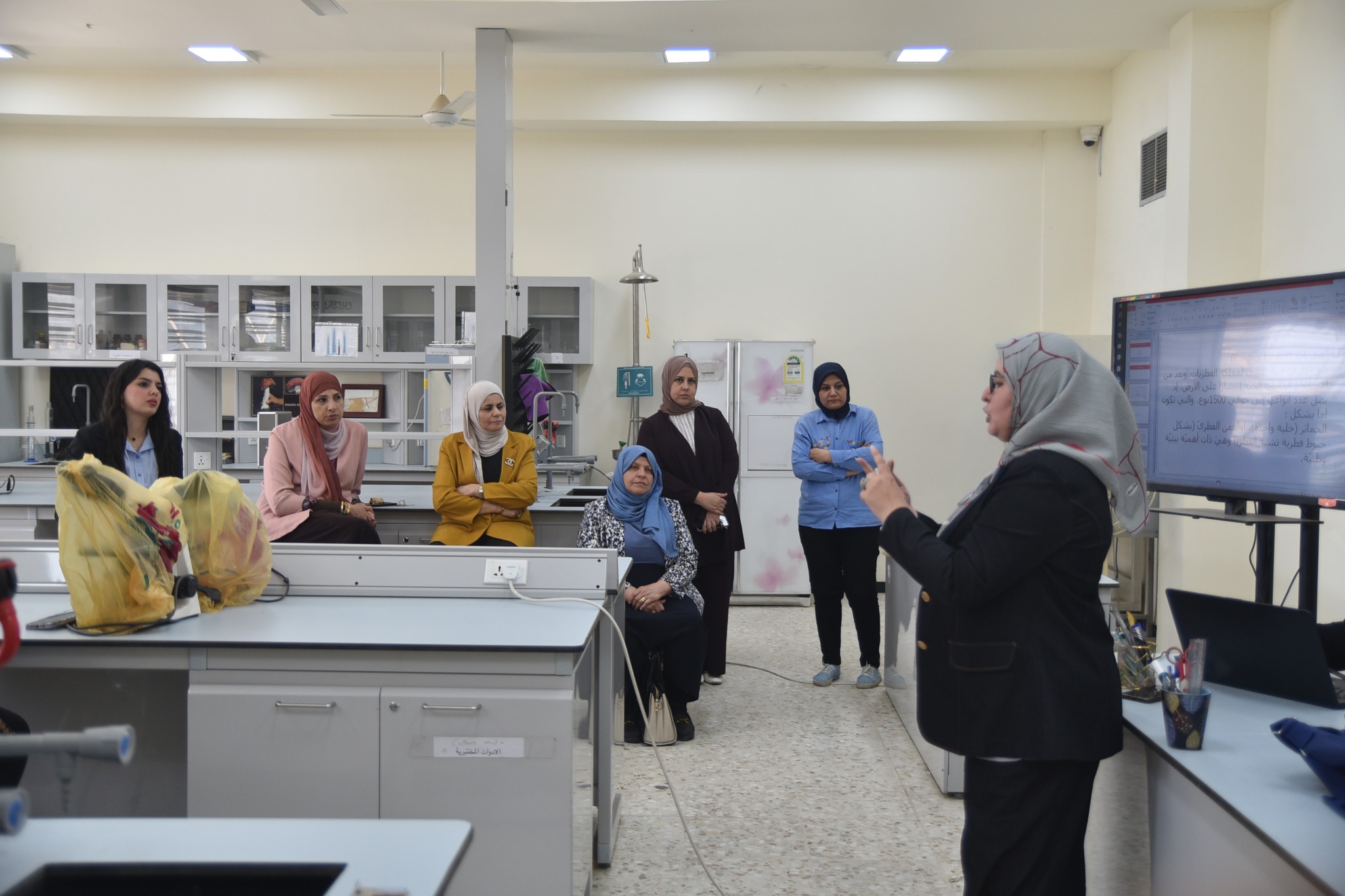
Comments are disabled.

